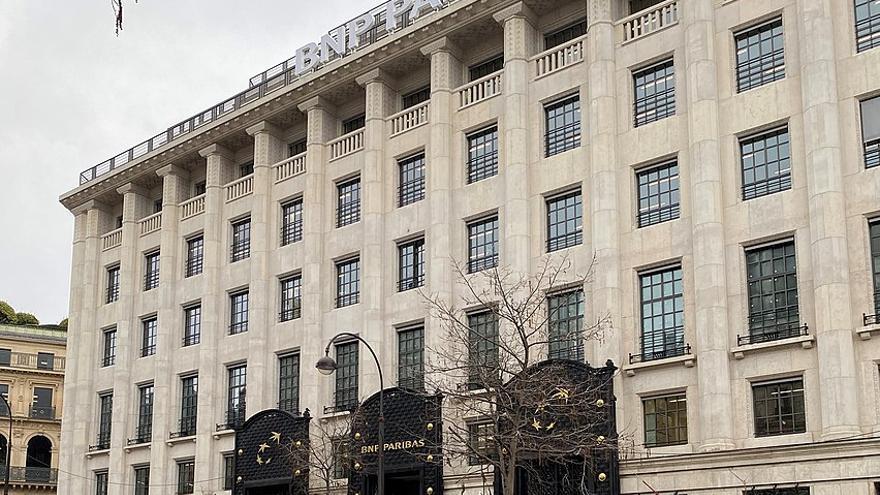
![]() 14ymedio, Madrid, April 3, 2023 — The lawsuit against two French banks, Société Générale and BNP Paribas, for alleged trafficking in goods confiscated by the Castro regime was dismissed last Thursday by a court in New York. The complaint, based on the United States’ Helms-Burton law, was made by a dozen heirs of the Cuban, Carlos Núñez, owner of Banco Núñez, seized in 1960 by the revolutionary government of the Island.
14ymedio, Madrid, April 3, 2023 — The lawsuit against two French banks, Société Générale and BNP Paribas, for alleged trafficking in goods confiscated by the Castro regime was dismissed last Thursday by a court in New York. The complaint, based on the United States’ Helms-Burton law, was made by a dozen heirs of the Cuban, Carlos Núñez, owner of Banco Núñez, seized in 1960 by the revolutionary government of the Island.
Société Générale and BNP Paribas were sued for doing business with the Central Bank of Cuba (BCC), owner of the former Banco Núñez after the nationalization, from which they would have obtained more than a billion dollars since 2000.
Judge Mary Kay Vyskocil has argued that Núñez’s heirs lack evidence to show that the Société Générale continued to handle BCC funds after the $ 1.34 billion fine that the entity agreed to pay in 2018 for evading U.S. sanctions against Cuba and other countries between 2004 and 2010.
As for BNP Paribas, the magistrate points out that the claims are too old and that it lacks jurisdiction to intervene. According to the plaintiffs, the entity routinely delivered cash to the BCC in Switzerland, in addition to making transactions with entities that work with it.
The news was released by the British agency Reuters, which tried to talk to the parties, without any of them – -neither the banks nor the heirs of Nuñez — willing to make statements.
The case began in 1996, when the approval of the Helms-Burton Act opened the way in the United States for this type of claim. However, the suspension of Titles III and IV prevented the litigation from advancing in those 23 years. The reactivation of both sections of the rule by Donald Trump, in 2019, re-opened the way.
In 2018, Société Générale agreed to the payment of a fine to avoid further sanctions from the U.S. Treasury, which accused it of having “intentionally and consciously violated U.S. economic sanctions related to Cuba, especially the Trading with the Enemy Act, preparing, carrying out and hiding U.S. dollar transactions using the U.S. financial system.”
The French bank made transactions worth $12 billion, of which approximately half were carried out from New York.
For its part, BNP Paribas paid a fine of $8.97 billion in 2014, imposed by the Treasury and Justice departments for having managed thousands of transactions with entities on the Island worth $1.7 billion.
“This fine, which is the largest imposed in history by the United States Government for violations of the blockade against Cuba and the sanctions in force against third countries, violates the norms of International Law and qualifies as an extraterritorial and illegal application of U.S. law against a foreign entity,” the Cuban Government denounced at the time.
Translated by Regina Anavy
____________
COLLABORATE WITH OUR WORK: The 14ymedio team is committed to practicing serious journalism that reflects Cuba’s reality in all its depth. Thank you for joining us on this long journey. We invite you to continue supporting us by becoming a member of 14ymedio now. Together we can continue transforming journalism in Cuba.
